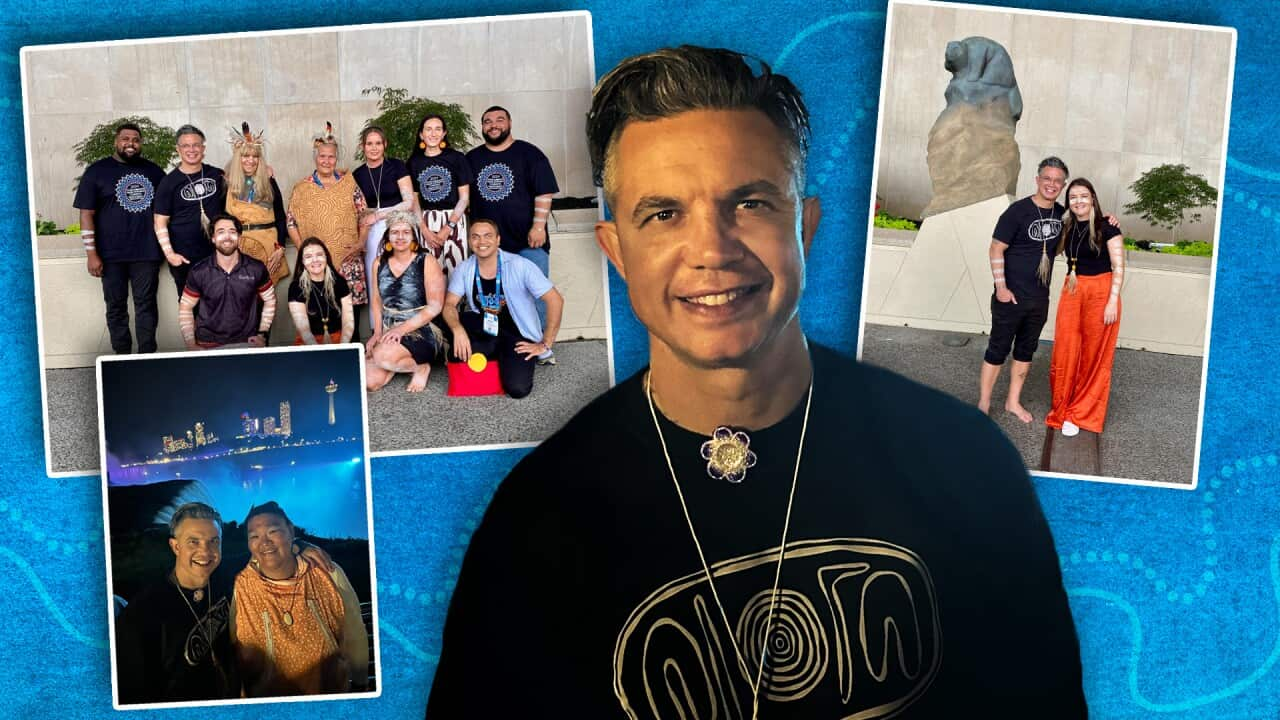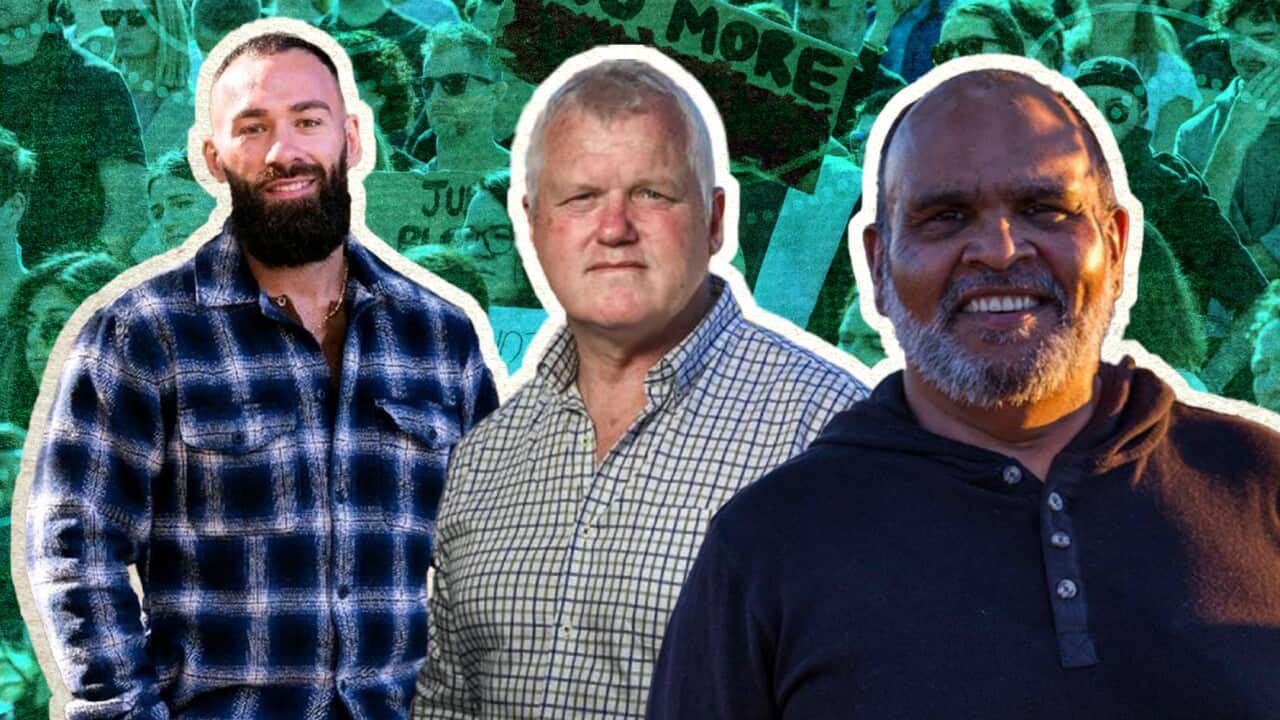The thud of drums like a heartbeat, the collective chanting with layered harmonies, rhythmic energy radiating through my body; piercing shock waves to every piece of my being.
The sound of First Nation/Native/Indigenous peoples from across the globe, converging together on Seneca Nation, Niagara Falls; in search of answers to the crippling rates of suicide in our communities.
I was honoured to have been asked to deliver one of the keynote speeches at the 4th World Indigenous Suicide Prevention Conference (WISPC) last month.
This gathering provided a culturally safe space for us to come together as a global community of original peoples; to share our experiences, work, story and collective efforts to heal our communities from the devastating impacts of suicide.
Our shared struggle

The Aboriginal and Torres Strait Islander contingent representing at WISPC. Credit: Supplied
The common theme is that we all face similar challenges in our communities and are confronted with the enduring and ongoing impacts of trauma due to the forced changes from our original ways of doing and being.
The ongoing effects of generational trauma is evident across our communities globally; the dispossession and disparity as a collective is all too common.
This year’s conference topic being ‘Reclaiming Indigenous resiliency and hope’, we came together at Niagara Falls to find collective solutions and to support one another in our journey towards healing.
I can honestly say that, in all the work I have been doing throughout Australia and internationally over the past 12 years within the suicide prevention space, this conference was by far the most impactful on me personally.
There were belly laughs, tears and hugging each other and not wanting to let go.
Like a big family reunion.
Indigenous peoples worldwide, had come in search for answers and it was a striking speech by Stacy Bohlen, a citizen of the Sault Ste Marie Tribe of the Chippewa peoples that pierced the packed auditorium like an arrow head when she said, ‘We will beat suicide with a stick, when we reclaim who we are.'
The reclamation of our identity
One of the main challenges collectively across so many of our communities in Australia, is the common impact that a lack in identity has on our wellbeing.
The knowing of who we are as individuals.
There was that same narrative across many of the breakout sessions in the conference.
It was evident, living with authenticity and the knowing of our original values and beliefs, will be the ways in which we heal our communities both locally and globally.
In reflection, Michael Naera of Aotearoa New Zealand and World Indigenous Suicide Prevention Conference Board member said, ‘This global event sets the foundation for enhancing and changing the landscape of Indigenous suicide prevention.'
This gathering was a chance for our communities globally to discuss what matters to them, not "what is the matter with them" by sharing Indigenous knowledge and wisdom.
Eliza Kitchener, who was at the conference representing the Black Dog Institute’s Aboriginal and Torres Strait Islander Lived Experience Centre said, "We sat next to the thunderous Seneca falls and we listened to our Brothers and Sisters from across the world."
"Right through my body I felt the power of those ancient waters and the people who belong to them, guiding us forward.
"Culture heals, and what an indescribable joy it has been to sit in a room where every one knows this simple fact. I feel like I let out a breath I didn’t know I was holding."

Meeting Indigenous Brothers & Sisters from across the world was a beautiful highlight, says Joe. Credit: Supplied
"As we are reclaiming our identities, our teachings, our songs, our culture - we are healing those wounds and traumas from colonisation, boarding schools and addiction.
"It was an honour for the my people - Seneca Nation, to host the WISPC event to promote hope and life by one of the most powerful places on Earth."
We came together in search of answers, we leave each other with gratitude and a collective love and care for one another - for we know the pain we collectively share, but also the wisdom we inherently carry.
We can and will be able to heal the challenges our communities face, by community led solutions founded in grassroots initiatives - like our brothers and sisters are doing throughout the globe, we just need to be given the opportunity to do so.
Joe is a proud Wiradjuri/Wolgalu, First Nations Aboriginal man born in Cowra, raised in Wagga NSW, Australia. Joe is a former NRL player and Boxing champion, who is now a mental health advocate delivering customised workshops dealing with adversities, struggles, resilience, addiction, connection, emotional wellbeing & healing trauma in schools, communities, correctional services, sporting clubs and workplaces.





